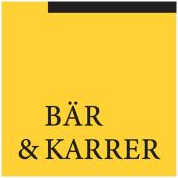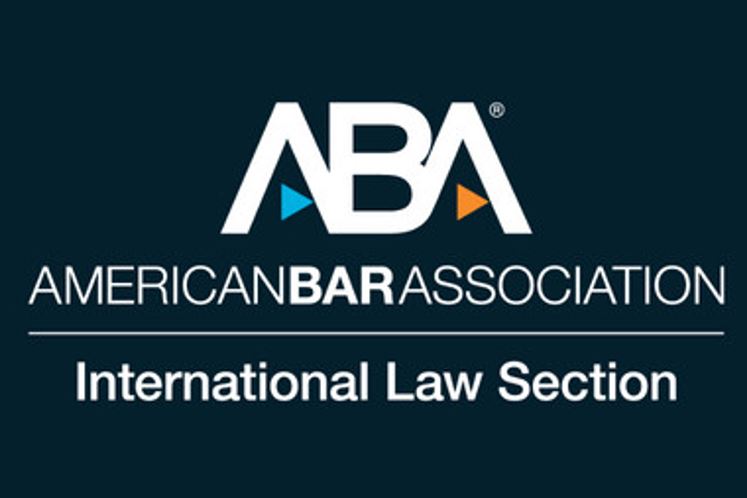I. Can allegations of corruption serve as a bar to jurisdiction of arbitral tribunals or admissibility of claims?
Under Swiss law, according to the principle of compétence-compétence, the arbitral tribunal has the authority to rule on its own jurisdiction, including addressing any claims of corruption raised by the parties that may challenge its jurisdiction. Even if there are ongoing proceedings concerning the same subject matter between the same parties before a state court or another arbitral tribunal, the arbitral tribunal will still be competent to determine its jurisdiction unless there are significant reasons to stay the proceedings.
Allegations of corruption will in principle not bar the admissibility of claims, as any claim with an economic interest may be submitted to arbitration if the arbitration clause is valid. A dispute is non-arbitrable only if considerations of ordre public requires that the dispute be settled solely by the Swiss courts. Allegations of corruption therefore do not automatically disqualify the parties from arbitration but may be taken into account in the award on the merits, potentially by rejecting the claims made.
In addition, by virtue of the principle of autonomy of the arbitration clause and the doctrine of severability, the arbitration clause remains valid even if the main contract is unenforceable or null and void due to corruption.
II. Can allegations of corruption affect the validity of an arbitral award?
Corruption allegations may be a ground for set-aside of an arbitral award or, when the time limit for its setting aside had lapsed, for its reconsideration – “revision”. Such applications must be filed directly with the Swiss Supreme Court.
The award can be challenged before the Swiss Supreme Court (for set-aside) on the following limited grounds (which mirror those listed in the 1958 New York Convention): irregularity in the appointment or constitution of the arbitral tribunal; incorrect decision on jurisdiction; where the arbitral tribunal has ruled ultra petita or has failed to rule on one of the claims; disregard of the parties’ due process rights; or incompatibility with Swiss public policy or ordre public. The latter ground might be invoked to challenge the validity of an arbitral award as acts of corruption are contrary to Swiss public policy. However, for the corresponding ground for setting aside to be upheld, corruption must have been established in the arbitral proceedings whereas the arbitral tribunal has refused to consider it in its award.
The grounds for revision of an arbitral award are limited. They include circumstances in which an arbitral award was obtained criminally, particularly through bribery or corruption, or when new material facts or evidence unavailable at the time the award was rendered was discovered despite the party’s due diligence. Such circumstances, although unknown to an affected party at the time the arbitral award was rendered, should have occurred before the issuance of the award. If, inter alia, criminal proceedings establish that the award was influenced to the detriment of a party to the arbitral proceedings by a crime or misdemeanour, it can be subject to revision, even if such proceedings did not result in a conviction. For this ground for revision to be upheld, there must be a causal link between the offence of corruption committed and the outcome of the arbitration. In other words, the offence must have had an actual influence on the award in question to the detriment of the party who has thus suffered an unfavourable result. When such causal link is determined, the Swiss Supreme Court may annul the award and remand the matter to an arbitral tribunal to be newly constituted.
III. In annulment or enforcement proceedings, can the court review the award and the merits to determine whether corruption or related offences affect the underlying dispute?
In set-aside proceedings, the Swiss Supreme Court has a limited role in reviewing arbitral awards, including in cases involving corruption. Indeed, the Swiss Supreme Court only reviews the facts of the case if they have been established arbitrarily, meaning if they have been established in a manifestly inaccurate manner. The threshold is therefore very high. While parties may claim that anti-corruption laws were disregarded by the tribunal, the court typically does not reassess the facts or merits of the case. Instead, the Swiss Supreme Court examines whether the award breaches fundamental legal principles of public policy, with a very high threshold for intervention. For the award to be set aside, the misapplication of anti-corruption laws must result in an outcome that is deemed absolutely intolerable.
In the ambit of enforcement of an award, the Swiss Supreme Court does not reassess the merits of the dispute or the factual findings of the arbitral tribunal. Minor legal or factual errors are insufficient grounds for denying enforcement.
Ultimately, while corruption allegations are taken seriously, courts in set aside and enforcement proceedings aim to preserve the finality of arbitral awards. They intervene only when the violation of public policy is severe and unmistakable. This approach ensures that arbitral awards are upheld unless the misconduct, such as corruption, directly undermines the fairness or legitimacy of the arbitral process, leading to an outcome that fundamentally contradicts the legal order of Switzerland.
In revision proceedings, the Swiss Supreme Court may review the award and its merits if allegations of corruption affecting the merits of the dispute were raised during arbitration but were rejected by the arbitral tribunal due to insufficient evidence. If new, conclusive evidence that existed at the time the arbitral award was rendered is discovered after the award, this may lead to a revision to be granted. However, the threshold for the Swiss Supreme Court to revise arbitral awards, including those involving corruption claims, is high. The Swiss Supreme Court carries out a full review of the fact if the applicant provides proof of the ground for revision.
IV. Can courts review corruption allegations which have not been raised in the arbitration?
Courts in set-aside proceedings generally cannot review allegations of corruption that were not raised during the arbitration itself. Under Swiss law, the Federal Supreme Court is bound by the facts established by the arbitral tribunal and does not reassess the merits of the case unless there has been a significant procedural violation, such as fraud or corruption affecting the tribunal’s decision-making process. If corruption was not argued or addressed in the arbitration, it is unlikely that the court will allow it to be introduced for the first time during set-aside proceedings, as the court’s review is limited to assessing whether the arbitral award violates fundamental public policy principles based on the existing record.
Similarly, in enforcement proceedings under the New York Convention, courts are hesitant to entertain new allegations of corruption that were not raised before the arbitral tribunal, unless there is a violation of public policy.
According to the Swiss Supreme Court, a party cannot rely on circumstances that postdate the disputed award to request a revision of an arbitral award rendered in a Swiss-seated arbitration, even if these new circumstances relate to corruption-related allegations. A party may seek revision only if it is able to demonstrate that these facts could not have been discovered earlier, despite exercising the required diligence, and thus could not have been presented during the arbitration proceedings.
V. Do courts defer to the arbitral tribunal’s finding that no corruption acts were committed?
If the arbitral tribunal has examined the allegations of corruption and found no wrongdoing, the Swiss Supreme Court is unlikely to question or overturn these findings during set-aside process.
The deference to the tribunal’s findings also extends to enforcement proceedings, where Swiss courts generally respect the tribunal’s factual determinations, including rulings on corruption. As long as the arbitral process was fair and the tribunal’s decision does not grossly violate Swiss public policy, the courts will not intervene.
In revision cases, the Swiss Supreme Court may reach a different conclusion from the arbitral tribunal on corruption-related findings. If a party seeking a revision of an arbitral award presents newly discovered evidence that strengthens the corruption allegations previously raised during the arbitral proceedings – allegations that were dismissed by the tribunal due to insufficient evidence – the Swiss Supreme Court may grant the party’s request for revision.
VI. Is there a standard of proof used by arbitrators and reviewing courts to assess the existence of corruption?
In arbitration seated in Switzerland, corruption allegations are subject to the standard rules of evidence and burden of proof. Arbitrators generally require the party raising corruption claims to substantiate them to a degree that leaves no serious doubt about their occurrence. This standard is often referred to as “clear and convincing evidence,” which, while not as high as the criminal law standard of proof beyond a reasonable doubt, is higher than the balance of probabilities typical in civil cases. Proving corruption is particularly challenging because those involved in such acts usually take steps to conceal their wrongdoing, such as using intermediaries or manipulating records. Arbitrators can consider indirect evidence or suspicious circumstances, such as unusually high consultancy fees without justification, as potential indicators of corruption. However, arbitrators cannot act independently of the parties’ arguments and must respect the procedural rights of both sides, including the right to be heard.
VII. Which method do arbitrators and reviewing courts employ to establish evidence of corruption?
Arbitrators seated in Switzerland generally use a combination of burden of proof, circumstantial evidence, and inferences to establish whether corruption has occurred. This means that arbitrators must be firmly convinced of the corrupt acts, which is a higher threshold than the balance of probabilities used in typical civil cases. Given the secretive nature of corruption, direct evidence is often unavailable, making this standard difficult to meet.
To overcome the lack of direct evidence, arbitrators frequently rely on circumstantial evidence and indirect indicators. Such evidence might include unusually large payments for vague consultancy services, discrepancies in financial records, or a lack of clear documentation explaining large transactions. Suspicious behavior, such as refusing to provide an explanation for substantial financial transfers or having contracts that appear fabricated, can also lead arbitrators to infer corruption. In these situations, the party suspected of corruption may be required to offer convincing explanations to avoid adverse inferences.
VIII. Are arbitrators seated in your jurisdiction bound by criminal proceedings on issues that could impact the underlying arbitration dispute?
Arbitrators seated in Switzerland are not bound by the decisions of criminal authorities abroad on matters that could influence the arbitration. Similarly, arbitrators seated in Switzerland are not formally bound by the outcome of criminal proceedings related to issues that could impact the underlying arbitration dispute. The principle of autonomy of the arbitral process allows arbitrators to make independent assessments of the facts and legal issues, even if they overlap with criminal matters. While arbitrators may consider evidence from criminal proceedings or take notice of findings from those cases, they are not obliged to follow the decisions or conclusions reached by criminal courts.
As clarified by the Swiss Supreme Court, arbitral tribunals are independent and may reach their own conclusions regarding allegations of corruption or other criminal issues, irrespective of the findings in criminal proceedings. Furthermore, the Swiss Supreme Court emphasized that a finding of corruption by national courts do not automatically represent an absolute “material truth” that must be followed by other judicial or arbitral authorities when determining whether the relevant contracts were obtained through bribery.
However, in certain circumstances, if criminal proceedings establish facts that are critical to the arbitration, arbitrators may find those findings persuasive or relevant. For example, if a criminal court definitively establishes corruption or fraud, arbitrators may consider that in deciding whether a contract is void or unenforceable. Nonetheless, they retain the discretion to independently evaluate the relevance and impact of the criminal findings on the arbitration dispute.
IX. To what extent do they rely on or defer to findings from parallel criminal investigations?
Arbitral tribunals generally do not automatically defer to findings from parallel criminal investigations, but they may consider them as part of the overall evidence presented in the arbitration. The degree of reliance on or deference to criminal findings depends on several factors, including the relevance of the criminal proceedings to the arbitration, the overlap of facts, the type of findings made by the criminal court, and the standards of proof applied.
However, if the findings from the criminal investigation are directly relevant and reliable, arbitrators may give them considerable weight. In particular, undisputed facts established in criminal cases, such as the occurrence of illegal activities like bribery or fraud, can be influential in the tribunal’s decision-making. Nevertheless, arbitrators retain the freedom to assess how much weight to give these findings, especially if the parties present additional evidence or arguments that might lead to a different conclusion in the arbitration.
X. Are remedies available when an arbitral tribunal rules that there is no evidence of corruption but subsequently a criminal ruling decides otherwise?
After the arbitral award is rendered, it is possible to file a request for revision before the Swiss Supreme Court. The Swiss Supreme Court can review an international arbitration award when criminal proceedings have established that the award was influenced by a criminal act to the detriment of the party requesting revision. The right to file for revision will expires within an absolute time-limit of ten years starting when the award becomes legally binding.



